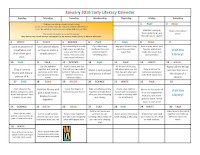“An understanding of computer science is becoming increasingly essential in today’s world. Our national competitiveness depends upon our ability to educate our children—and that includes our girls—in this critical field.”
—Sheryl Sandberg
Sheryl Sandberg, the chief operating officer of Facebook, is one of many advocates of computer science education in our country. Educators, technology experts, business leaders, and even celebrities support a new movement with a clear purpose: to teach children to read and write code.
“Coding is the new literacy. To thrive in tomorrow’s society, young people must learn to design, create and express themselves with digital technologies,” says Mitchel Resnick, a media arts and sciences professor at the MIT Media Lab.
Click here for the full article
Coding is the new literacy. There is a big movement going on to teach kids to code and there is a lot of information and resources to start introducing your child to the world of coding. As we become more digital in all aspects of our lives, logic, math and science are becoming increasingly important in early education. Furthermore, encouraging girls to become active in coding is so important! Girls can code!
The logic behind coding can be taught at a very young age. Here is a great article about Coding for Kindergartners. And this kinesthetic learning idea is a fantastic way to introduce the logic of coding. http://leftbraincraftbrain.com/2015/03/18/if-then-backyard-coding-game-for-kids/
Scratch helps young people learn to think creatively, reason systematically, and work collaboratively — essential skills for life in the 21st century.
Scratch is a project of the Lifelong Kindergarten Group at the MIT Media Lab. It is provided free of charge. http://news.mit.edu/2014/scratchjr-coding-kindergarten
Here is a list of resources to get you started:
http://www.apartmenttherapy.com/20-resources-for-teaching-kids-how-to-program-code-200374
Friday, November 13, 2015
Tuesday, November 10, 2015
YSS Early Literacy Calendar
This project is brought to you by the Youth Services Section of the Wisconsin Library Association and awesome librarians from all over WI contributed to it.
The calendar offers caregivers 365 days of tips on how to raise a reader.
http://wla.wisconsinlibraries.org/images/yss/2016_Early_Literacy_Calendar.pdf
Monday, November 9, 2015
Libraries Outside the Box
In 2015, I was on an ILEAD USA- WI team which was a nationwide leadership immersion program utilizing web technologies. Our team wanted to bridge the gap between school and public libraries. We created a website with resources for librarians, but there are a lot of great resources for teachers and parents as well.
http://www.librariesoutsidethebox.com/
http://www.librariesoutsidethebox.com/
Early Literacy Apps in Storytime
Other apps for early literacy resources for librarians, parents and caregivers:
http://littleelit.com/
https://www.pinterest.com/clearwaterlib/early-literacy-apps-for-kids/
https://www.pinterest.com/carisakluver/apps-for-early-literacy/
Sunday, November 8, 2015
20 Year Study on the Impact of Books in the Home
Whether you fill your home with books bought from a garage sale, from a bookstore or borrowed from the library, having books in the house for your children can have a major impact on their lives.
From Dr. Mariah Evans' 20-year study, she has formed some hypotheses:
- Reading with very small children -- and talking about the books as you read -- makes a big difference.
- Homes in which books are used to adjudicate questions of fact, rather than debating them as though they were matters of opinion, make an important contribution to childrens learning strategies.
- Children watch what their parents do, so reading at home is very important in a role-modeling sense.
- Children gain skills and culture/content from the books in the home. These skills and content help children perform better on standardized tests.
- Bookish homes help children like school and see their teachers as valuable coaches. Both performing well and liking school encourage youth to persist in education, even when the going gets tough.
Subscribe to:
Comments (Atom)





